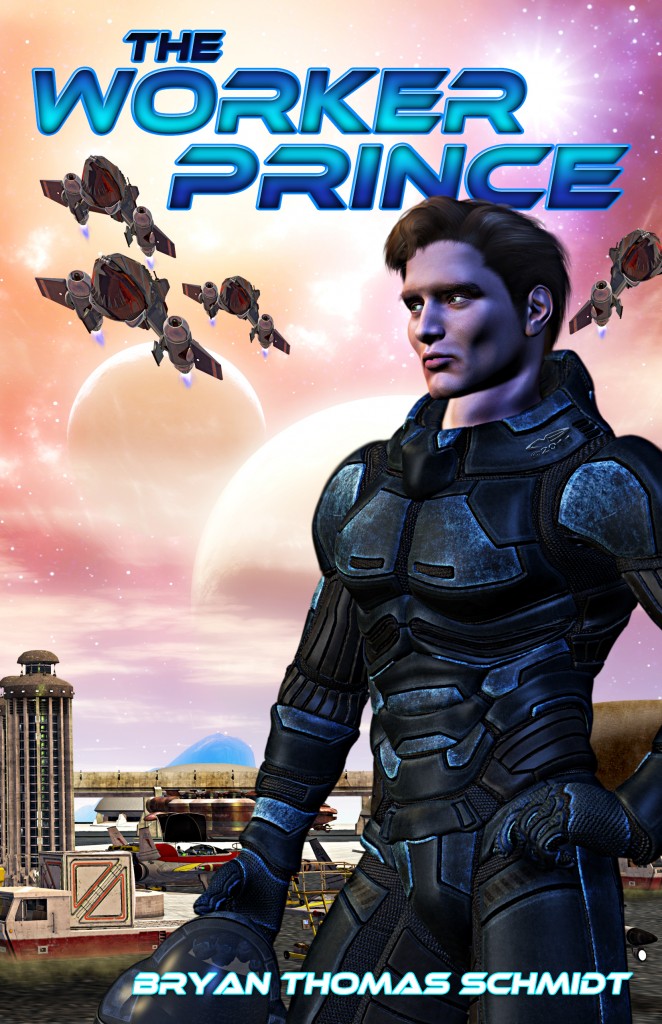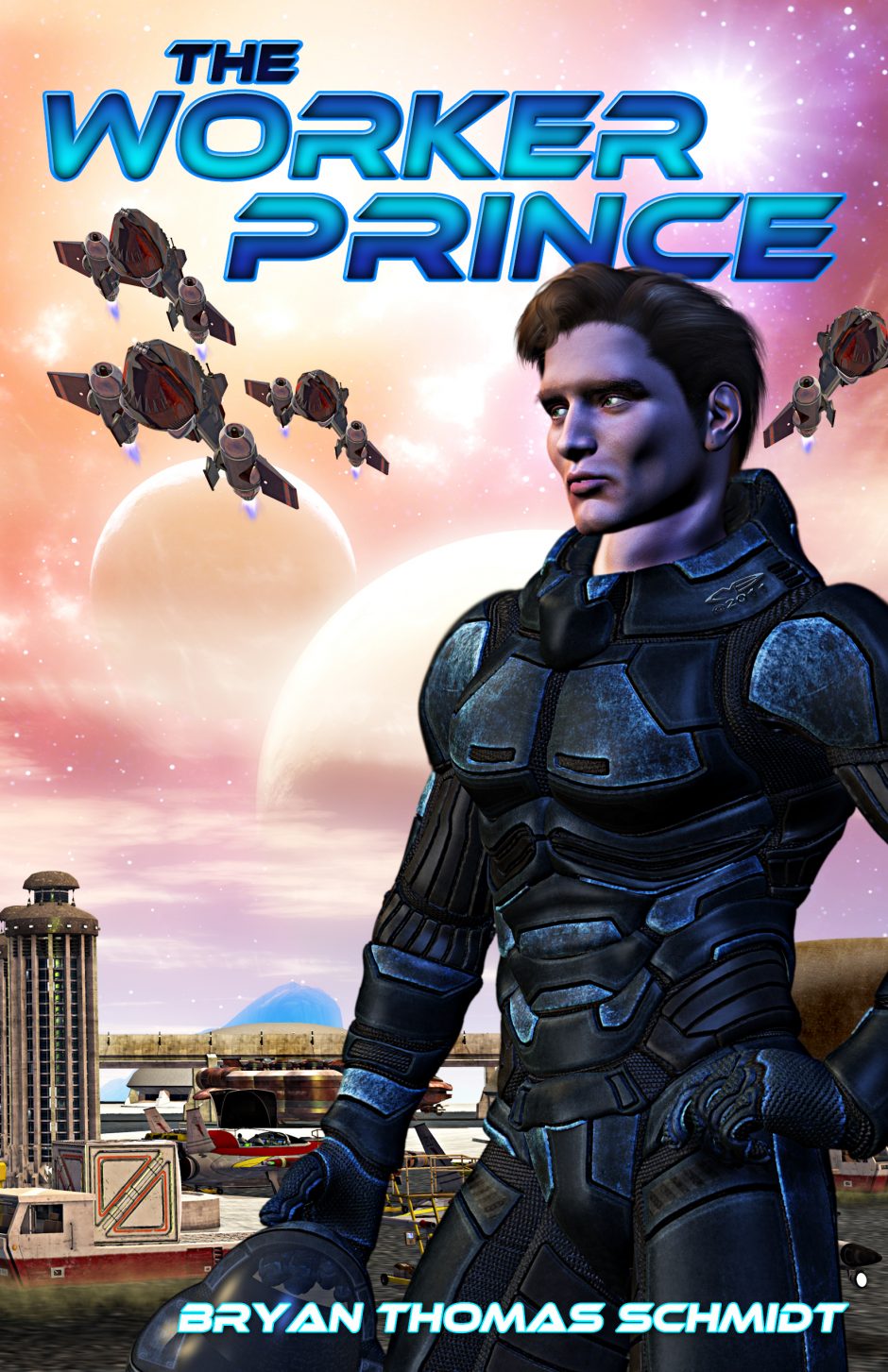Well, this was my first Asimov robots book, and I really enjoyed it. In fact, it’s been a decade, but I don’t remember enjoying the Foundation series as much as I did this. It’s a thriller detective story at heart with a SF setting.
The premise is that Spacers, descendents of Earth who have grown up on colonies in space, have returned to live outside the domed cities of Earth. In this case, New York. The spacers keep most Earthlings from entering their cities for fear of disease and are standoffish. Most of them don’t come into the domes either. Instead, they send robots. But the Earthlings distrust robots. In fact, many fear them. Then a spacer is murdered. Grizzled New York detective Lije (Elijah) Bailey is assigned to investigate and, in the interests of proving he’s fair, assigned a spacer partner named R. Daneel Olivaw. The R designates his species: robot, or really an Android, since he looks identical to his human creator, the murder victim. Lije’s natural distrust of robots and his own family’s fears are brought into play as they get to know each other and begin to investigathe. At first, Lije accuses the Spacers themselves of the murder as a plot to destabilize relations between the two group. But over time, he begrudgingly comes to respect Daneel, and, in fact, together they discover a far deeper plot.
Although there are moments of silly dialogue (Asimov isn’t known for great dialogue according to anything I’ve read) like “Why you need go in for–for no purpose?” AHEM, he is known for great ideas. His future view of the Earth could happen, but I’d hope it doesn’t. The idea of big cities encased in domes and a countryside run by robots solely for agricultural and resource gathering is a bit sad to think about. People so used to dome air they get sick in the open air? Wow. That would be disappointing for someone who enjoys the outdoors like me. Still, the story moves at a nice clip and the character building of the two leads is very strong. Supporting characters who get some attention include Jessi, Lije’s wife, a Spacer robotics scientist, and the Police Commissioner, who is Lije’s old classmate and friend. But mostly the story centers around Lije and Daneel as they investigate and interrogate various bit players and examine evidence.
Unlike today’s novels, the book is short at 191 pages. And there are a few archaic phrases such as “he took a wrong turning” which seem to have been proper usage at the time (1953) when the book was published, but which aren’t common now. So in that sense, the book feels dated. But Asimov gets a lot of plot into its short length. I was engaged from very early on. I wanted to know what would happen next, and I look forward to The Naked Sun, Robots Of Dawn and Robots and Empire. I may squeeze them into this Journey Through The SFF Classics as I expand that list. We’ll see. I have plenty on the list to keep me busy for a while, as you may remember from the introductory post.
In any case, this is a highly entertaining and fast read and I think it would be a great entry not only to classic science fiction and fantasy but to Asimov for anyone who has not yet read his work or many classics.
Next up on my Journey: Do Androids Dream Of Electronic Sheep? by Philip K. Dick
 Bryan Thomas Schmidt is the author of the space opera novels The Worker Prince, a Barnes & Noble Book Clubs Year’s Best SF Releases of 2011 Honorable Mention, andThe Returning, the collection The North Star Serial, Part 1, and has several short stories featured in anthologies and magazines. He edited the new anthology Space Battles: Full Throttle Space Tales #6 for Flying Pen Press, headlined by Mike Resnick. His children’s book 102 More Hilarious Dinosaur Jokes For Kids from Delabarre Publishing. As a freelance editor, he’s edited a novels and nonfiction. He’s also the host of Science Fiction and Fantasy Writer’s Chat every Wednesday at 9 pm EST on Twitter, where he interviews people like Mike Resnick, AC Crispin, Kevin J. Anderson and Kristine Kathryn Rusch. A frequent contributor to Adventures In SF Publishing, Grasping For The Wind and SFSignal, he can be found online as @BryanThomasS on Twitter or via his website. Bryan is an affiliate member of the SFWA.
Bryan Thomas Schmidt is the author of the space opera novels The Worker Prince, a Barnes & Noble Book Clubs Year’s Best SF Releases of 2011 Honorable Mention, andThe Returning, the collection The North Star Serial, Part 1, and has several short stories featured in anthologies and magazines. He edited the new anthology Space Battles: Full Throttle Space Tales #6 for Flying Pen Press, headlined by Mike Resnick. His children’s book 102 More Hilarious Dinosaur Jokes For Kids from Delabarre Publishing. As a freelance editor, he’s edited a novels and nonfiction. He’s also the host of Science Fiction and Fantasy Writer’s Chat every Wednesday at 9 pm EST on Twitter, where he interviews people like Mike Resnick, AC Crispin, Kevin J. Anderson and Kristine Kathryn Rusch. A frequent contributor to Adventures In SF Publishing, Grasping For The Wind and SFSignal, he can be found online as @BryanThomasS on Twitter or via his website. Bryan is an affiliate member of the SFWA.


